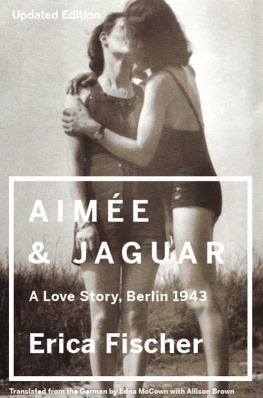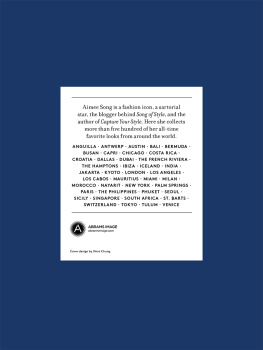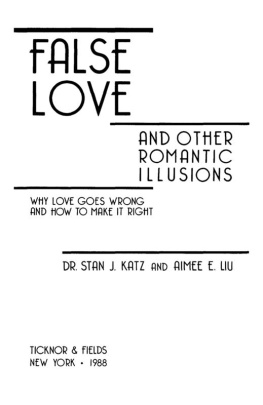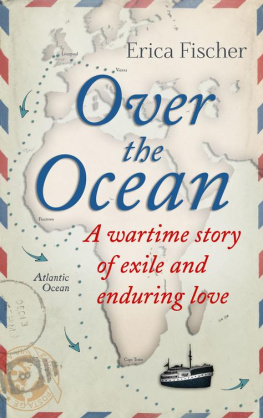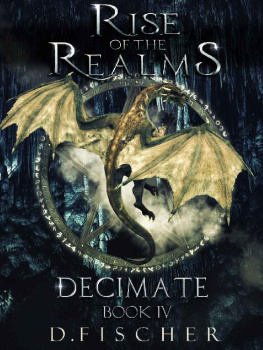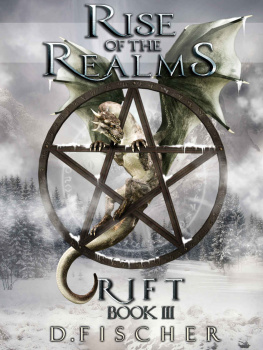Erica Fischer - Aimee & Jaguar: A Love Story, Berlin 1943
Here you can read online Erica Fischer - Aimee & Jaguar: A Love Story, Berlin 1943 full text of the book (entire story) in english for free. Download pdf and epub, get meaning, cover and reviews about this ebook. year: 2015, publisher: HarperCollins, genre: History. Description of the work, (preface) as well as reviews are available. Best literature library LitArk.com created for fans of good reading and offers a wide selection of genres:
Romance novel
Science fiction
Adventure
Detective
Science
History
Home and family
Prose
Art
Politics
Computer
Non-fiction
Religion
Business
Children
Humor
Choose a favorite category and find really read worthwhile books. Enjoy immersion in the world of imagination, feel the emotions of the characters or learn something new for yourself, make an fascinating discovery.

- Book:Aimee & Jaguar: A Love Story, Berlin 1943
- Author:
- Publisher:HarperCollins
- Genre:
- Year:2015
- Rating:3 / 5
- Favourites:Add to favourites
- Your mark:
- 60
- 1
- 2
- 3
- 4
- 5
Aimee & Jaguar: A Love Story, Berlin 1943: summary, description and annotation
We offer to read an annotation, description, summary or preface (depends on what the author of the book "Aimee & Jaguar: A Love Story, Berlin 1943" wrote himself). If you haven't found the necessary information about the book — write in the comments, we will try to find it.
Aimee & Jaguar: A Love Story, Berlin 1943 — read online for free the complete book (whole text) full work
Below is the text of the book, divided by pages. System saving the place of the last page read, allows you to conveniently read the book "Aimee & Jaguar: A Love Story, Berlin 1943" online for free, without having to search again every time where you left off. Put a bookmark, and you can go to the page where you finished reading at any time.
Font size:
Interval:
Bookmark:
DEDICATION
For Felice
ACKNOWLEDGMENTS
My thanks to:
Ingrid Lottenburger, Margot Scherl, Sonja Wohlatz and Inge Keller, for letting me stay at their apartment in Berlin;
Gerd W. Ehrlich, who entrusted me with his unpublished manuscript;
Annette Leo, for providing me with material on Gross-Rosen;
Susanne Pollak, who offered encouragement on this project from the very beginning;
Christel Becker-Rau, who took the wonderful photographs of Lilly;
Robert S. Mackay, Lillys agent and friend, for establishing contact with Kiepenheuer & Witsch;
the Omina Freundeshilfe Foundation for their financial support;
the Ministry of Culture of North Rhine-Westphalia for providing a work grant;
Mieczysaw Modawa, who sent me his book on Gross-Rosen and provided me with valuable suggestions;
Stella Leibler, for her report on Peterswaldau;
Friederike Cohensius, for her memories of the Peterswaldau camp;
Andrea Rudorff, for the information she gave me on the Kurzbach womens subcamp;
my mother, Irena Fischer, who translated Stella Leiblers letters and excerpts from Mieczysaw Modawas book for me from Polish;
the women of Vienna, whose appreciation and warmth during the first reading I gave from the unfinished manuscript encouraged me to go on;
Erwin Buchwieser, Gerd W. Ehrlich, Siegfrid Gehrke, Elenai Pollak, Olga Selbach, Lola Sturmova, Inge Wolf and Drthe Zivier, as well as Lillys sons, Albrecht, Bernd, and Eberhard Wust, for opening themselves to my questions;
Beate Mohr of San Francisco, for a conversation;
Christa-Maria Friedrich, a former classmate of Felice, who offered important details about Felice and her family;
my editor, Erika Stegmann, who always believed in the book and as in other projects saw me through its development with affectionate severity;
and finally to the central character, Lilly Wust, who, in countless and at times distressing conversations with me, allowed her memories to be uprooted from the past, and whose trust in me never faltered, even when I was impatient and intemperate.
LIST OF CHARACTERS
The Major Characters:
Elisabeth Wust, also called Lilly and Aime
Felice Schragenheim, also called Lice, Fice, Putz, and Jaguar
Albrecht, Bernd, Eberhard, and Reinhard Wust, Lillys sons
Inge Wolf, bookseller and Lillys domestic aide for one year
Gnther Wust, Lillys husband
Gnther and Margarethe Kappler, Lillys parents
Erwin Buchwieser, Albrechts father
Kthe Herrmann, Lillys best friend
Dr. Albert and Erna Schragenheim, Felices parents
Irene Schragenheim, Felices sister
Kte Schragenheim, ne Hammerschlag, also called Mulle, Felices stepmother
Hulda Karewski, Felices grandmother
Dr. Walter Karewski (Karsten), Felices uncle in the United States
Felices friends: Elenai Pollak, Nora, Ilse Ploog, Christine Friedrichs, Luise Selbach, also called Mutti, and Olga Selbach, Muttis daughter and Felices classmate
Hilli Frenkel, Felices best friend from school
Georg Zivier, called Gregor, a writer and a friend of Felice
Drthe Zivier, Gregor Ziviers wife
Gerd W. Ehrlich, an acquaintance of Felice and member of a Jewish underground group
Fritz Sternberg, a friend of Felice
Lola Sturmova, Lillys subtenant who had been bombed out of her home
Lucie Friedlaender, Dr. Rose Ollendorf, called Petel, Katja LasersteinLillys three witches
Willi Beimling, Lillys second husband
Liesl Reichler, Gnther Wusts fiance
EPIGRAPH
Senator of the Interior Lummer yesterday presented the Federal Service Cross, awarded by the Federal President, to Elisabeth Wust (68), of Lichterfelde. In the years from 1942 to 1945 Elisabeth Wust hid and cared for four Jewish women in her apartment in Schmargendorf. One of the women was hunted down by the Gestapo and died at the Auschwitz concentration camp. Three of the women survived the Nazi regime. This is the twenty-first Federal Service Cross awarded in Berlin to unsung heroes, those persons who offered aid to victims of Nazi persecution.
DER TAGESSPIEGEL, SEPTEMBER 22, 1981
CONTENTS
Dedication
Acknowledgments
List of Characters
Epigraph
One
Two
Three
Four
Five
Six
Seven
Eight
Nine
Ten
Eleven
Twelve
About the Author
Credits
Copyright
About the Publisher
ONE
The broad wooden stairs under the rust-red runner creaked as Inge Wolf took them two at a time to the fifth floor of Friedrichshaller Strasse 23. The bright and colorful lead-glazed windows of the landings looked out onto a leafy back courtyard and the modest lower wing where the lower-income families lived. With each floor she climbed, Inge gained a better view of the roofs of the Schmargendorf district of Berlin and the linden trees tinged with the colors of fall.
It was the first of October, and Inge Wolf was in a hurry to find a suitable position for herself. If she did not begin her compulsory year of domestic service soon, she would be called up by the National Labor Service. The Friedrichshaller Strasse address was her second attempt at finding work on this Thursday morning.
A slender redhead in rimless glasses opened the door marked Wust.
Good day.
Inge breathed a sigh of relief. She already had been received by four different housewives, all in apron dresses, with a Heil Hitler, and Oh, how nice that youve come! and she had given up hope of a simple Good day. The overabundance of Nazi women she was encountering was probably due to the fact that Inge, at twenty-one, was required to fulfill her obligatory service in a family with at least four children. Were she only sixteen, a family with one child would have been acceptable. It was bad enough that someone like herself, who had more on her mind than cooking and cleaning, had to work for others, but this pack of Nazis was really too much. If a woman invoked the Fhrer in her own home it was not hard to imagine what all would follow.
You know, I have so many choices, I think Ill look around a bit more, she would hasten to say each time, and make her getaway.
Was it Inges scrawny figure, her big ears, tousled short hair and intense dark eyes that caused Elisabeth Wust to greet her with Good day, or was this the first unmistakable sign of Elisabeths doubt in her husbands convictions? She had been dissatisfied for some time now, without knowing exactly why. She had no apparent reason to complain: her sons were doing splendidly and would some day attend the Napola, the elite Nazi school. On August 12 Elisabeth had received the Maternal Cross in bronze, on her fourth sons first birthday. Gnther Wust was serving as a soldier in Bernau, near Berlin, far from the front, thank God. In civilian life he was a clerk at the Deutsche Bank, soon to become an authorized signatory, a dashing fellow, tall, slim, with dark hair and good manners, the type of man every girl dreamed of. After meeting Gnther at a club run by the bank, Elisabethengaged to be married to someone elsesent her fianc packing.
With another sigh of relief Inge Wolf stuck into her jacket pocket the stack of white index cards with addresses from the Labor Service and decided her search was ended. The two women sat down at the freshly scrubbed kitchen table to take care of formalities. It was agreed that Inge would work each day from eight to five.
Ill show you around.
The spacious four-room apartment with its decorative plaster ceilings had a large balcony that overlooked shady Friedrichshaller Strasse and a smaller one off the kitchen, with a view of the roof of the rear wing. Scarcely had Inge entered the living room through the wide double doors before she realized she had made a fatal mistake. A highly polished relief of the Fhrer, and in bronze! What could she do? The time had come for her to utter her usual excuse and quickly disappear. But her papers lay filled out on the kitchen table and a retreat could arouse suspicion. All she needed was for someone to denounce her. Inge felt sad and weary at this latest disappointment. How long would she have to wander through Berlin before she found a family that had resisted the brownshirts? Did such a family even exist after what soon would be a decade of Hitlers dictatorship?
Next pageFont size:
Interval:
Bookmark:
Similar books «Aimee & Jaguar: A Love Story, Berlin 1943»
Look at similar books to Aimee & Jaguar: A Love Story, Berlin 1943. We have selected literature similar in name and meaning in the hope of providing readers with more options to find new, interesting, not yet read works.
Discussion, reviews of the book Aimee & Jaguar: A Love Story, Berlin 1943 and just readers' own opinions. Leave your comments, write what you think about the work, its meaning or the main characters. Specify what exactly you liked and what you didn't like, and why you think so.

